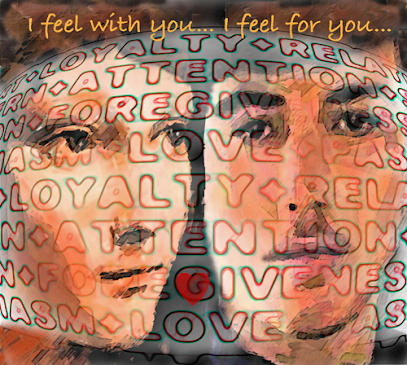World War II:
Portraits of Service
For most Americans, the sacrifices made by military personnel command profound respect and admiration. These brave individuals often confronted racial and gender prejudice within the armed forces, yet persevered through their unwavering commitment to serve their nation during wartime. While their valor was eventually recognized through military decorations and governmental honors, many of these distinguished veterans remain relatively unknown to the general public. This collection presents the compelling narratives of five exceptional individuals who transcended these barriers to emerge as exemplary American patriots.
Celina Baez Sotomayor exemplifies resilience and determination. Born in Puerto Rico and orphaned by age nine, she found solace in reading at the local library, nurturing dreams of a better future. When the Women's Army Corps recruited in 1944, the seventeen-year-old falsified her age to compete against 1,500 applicants for 200 positions allocated to Puerto Rican women. Despite rigorous testing designed to exclude Spanish-speaking recruits deemed less reputable than their mainland counterparts, Celina was accepted into a segregated Puerto Rican unit in New York City. Her assignment involved maintaining troop morale by facilitating correspondence between soldiers and their families overseas. After military service, she remained in New York, married, and became a practical nurse. Following her husband's death in 1964, she single-handedly raised two children while pursuing her nursing degree, eventually becoming an emergency room supervisor. Her daughter Sonia would later become the first Latina Supreme Court Justice.
Harry Katsuharu Fukuhara, a second-generation Japanese American, demonstrated extraordinary patriotism despite experiencing internment during World War II. Confined with 120,000 other ethnic Japanese in a desolate Arizona camp, Harry volunteered as a bilingual interpreter and translator, motivated by American pride and desperation to escape internment. Rather than translating documents in a government office as anticipated, he was deployed to the Pacific front, serving with white units while constantly risking friendly fire due to his ethnicity. His interrogation of Japanese prisoners yielded valuable intelligence, though promotion came slowly. Tragically, his mother and brother perished in the Hiroshima bombing, yet Harry continued serving during Japan's occupation, ultimately receiving recognition from both Japanese and American governments.
Jack Cleveland Montgomery, a Cherokee soldier, rose from impoverished Oklahoma circumstances to national heroism. Unlike many combat veterans, Montgomery avoided post-traumatic stress, possibly due to his college education and strong cultural foundation. His distinguished service began after Pearl Harbor, leading him through North Africa, Sicily, and Italy, where he earned the Silver Star and Medal of Honor despite being wounded twice. His Cherokee upbringing and identification with fellow servicemen provided emotional resilience throughout his military career and subsequent work with the Veterans Administration.
Roger Romine represents tragic potential unfulfilled. This Tuskegee Airman from Oakland, California, trained at the segregated Tuskegee Army Airfield and served as a lieutenant in Italy, successfully engaging enemy aircraft. However, his promising career ended abruptly in a bizarre accident when an Italian farmer's sheep wandered onto the airstrip, causing a collision that resulted in Romine's death in November 1944.
Dora Dougherty Strother McKeown challenged gender barriers as a Women Airforce Service Pilot. Despite initial skepticism about women's physical capabilities, she became one of 1,830 women selected from 25,000 applicants. Her duties included towing targets, operating experimental radio-controlled aircraft, and piloting advanced planes. Although male resentment led to women's exclusion from certain missions and the program's 1944 dissolution, Dora later championed veteran recognition for WASPs, achieving formal acknowledgment in 1977 and the Congressional Medal of Honor in 2009.
Here are the TOP 6 TOUGH VOCABULARY words from the passage with their meanings:
1. EXEMPLIFIES
Meaning: To serve as a typical example or illustration of something; to demonstrate or embody a particular quality
2. FALSIFIED
Meaning: To deliberately alter or misrepresent information to deceive; to make something false or inaccurate.
3. ALLOCATED
Meaning: To distribute or assign resources, positions, or quantities for a specific purpose
4. DESOLATE
Meaning: Barren, empty, and giving an impression of bleak emptiness; devoid of inhabitants or visitors
5. INTERROGATION
Meaning: The act of questioning someone closely, aggressively, or formally, especially prisoners or suspects.
6. DISSOLUTION
Meaning: The action of formally ending or dismissing an assembly, partnership, or official body; termination.
This passage tells the inspiring stories of five brave American soldiers who faced discrimination but still served their country with honor during World War II. These heroes included a Puerto Rican woman who worked in military communications, a Japanese-American translator who served despite being imprisoned, a Cherokee soldier who became a war hero, a Black pilot who tragically died in an accident, and a female pilot who flew military planes. Even though they faced racism and sexism, they all showed great courage and patriotism. Their sacrifices helped America win the war, and they deserve to be remembered and respected.
SOURCE- HISTORY NOW
WORDS COUNT - 550
FLESCH- KINCAID - 14.7




Comments
Post a Comment